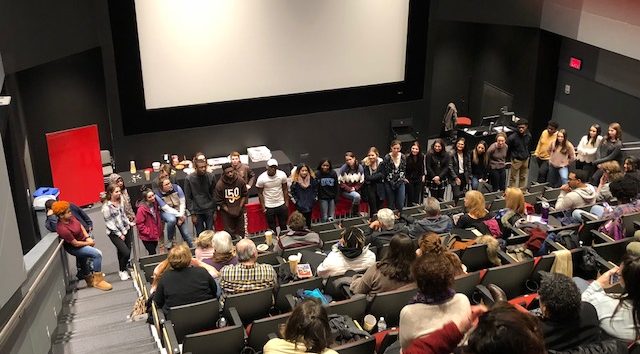As documentary is rooted somewhat in journalism and photography, it is to be expected that some bias exists. While the documentarian, journalist, or photographer attempts to bring to light the truth of an issue, their innate bias inevitably comes through somewhat in their art. In the preface, McClane states that this book focuses on documentary film of the Western world. She acknowledges her own innate bias, saying “I am bound by my own understanding of the world” (xiv.) McClane brings up as fact that documentaries are “limited to actuality” (3.) I personally have immense respect for documentaries because they are “purposive,” (7) not simply for entertainment and money. It is idealistic, however, to believe that because documentaries are intended for truth, they are entirely accurate.
I wrangled with Robert Flaherty during this reading, and contemplated two questions consistently.
First, what amount of Flaherty’s alterations were intentional, meant to help Westerners better empathize?
Second, is it at all acceptable for people like Flaherty to alter customs and lifestyles in this way, for what they perceive as purposed for education?
McClane introduces Flaherty as “an explorer” (21), an undisciplined potential “genius” “in love with the wilderness” (22.) She then discusses his struggle and hard work and dedication to bringing the truth to light. He is portrayed as different from the rest of the public who just sought “stars” (26) in their films. After reading this section, I held respect for Flaherty.
I quickly began to doubt Flaherty, however, when he decided what to disregard and to include, exaggerate, or even go so far as to create, in the construction of his films. His creation of the “nuclear family structured along conventional Western cultural lines” (29) in non-Western societies struck me. Flaherty also “revived” (27) a native Samoan custom solely for the purpose of his film. He changed their way of life for his film; it was not the entire truth. However, according to McClane this was (at least in part) intentional, in order to help the Western societies better relate to these cultures.
In addition, McClane says, “Flaherty may ultimately have been most concerned with the human spirit, but what he chose to show are its basic physical manifestations. He pays no attention to how his societies govern themselves, nor is there anything in his films about the spiritual life of the people” (31.)
McClane does say that Flaherty was never condescending to the subjects of his films (34.) She seems to almost dismiss his negative actions on the basis that he was not an anthropologist (34.) Documentarians can be many other things additionally, whether a journalist, photographer, student, or professional of some kind; when analyzing their work, however renowned, it is imperative to take bias into consideration.
